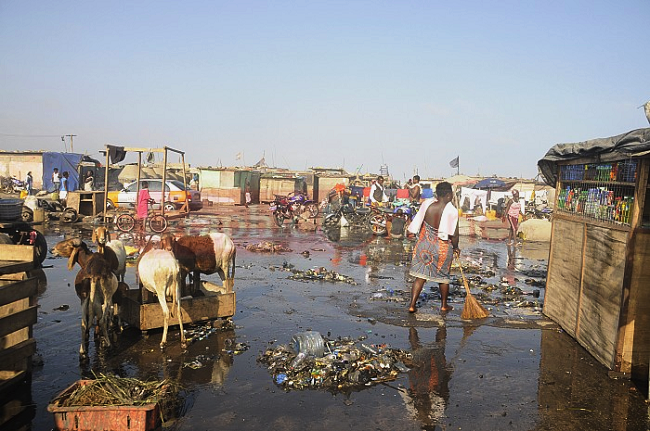
How prepared are we for tidal waves, national emergencies?
It has become the norm, instead of the exception, for officials to pay visits to victims of one misfortune or another.
Advertisement
We are not against the show of sympathy to community members who experience misfortune that is sometimes through no fault of theirs. Of course, showing concern is human and the government cannot be faulted for doing that.
The Daily Graphic, however, believes that there should be adequate warning systems in place to warn people of impending danger, so that they can flee to designated safe zones to save their lives and property.
Better still, places prone to disasters must be labelled as no-go areas for human habitation and the security agencies must work in concert with the relevant government agencies to ensure that there are no trespassers.
We live in times when disasters — natural and man-made — occur anytime and do not discriminate among countries. Both developed and developing countries experience earthquakes, floods and fire disasters.
But it takes those who are vigilant and well prepared to minimise the impact of disasters, especially when they are naturally occurring disasters.
Ghana has had its fair share of perennial floods, as well as fire outbreaks, that have cost us human lives and property worth millions of Ghana cedis.
Coastal communities have, in recent times, borne the brunt of ravaging sea waves as a result of rising sea levels caused by climate change.
Whole communities, as well as structures, continue to be buried under the sea and sand, for which reason they have become uninhabitable, despite the huge sums of money spent by the government to construct sea defence walls.
Last Sunday’s violent tidal waves that swept through parts of the coast in the Greater Accra and the Volta regions attest to the fact that aside from putting in preventive measures and bailing out community members affected by such misfortune, there is the need for very effective warning systems and quick response measures to save lives and property.
We urge state agencies, such as the Ghana Meteorological Agency (GMet), the Environmental Protection Agency (EPA), the National Communications Authority (NCA), the Ghana Health Service (GHS), the National Disaster Management Organisation (NADMO), and key professions such as air traffic controllers, telecommunications and IT companies, the Ministry of the Interior, as well as all security agencies, to team up to develop a warning and rescue system.
Such a system will not only timeously inform the public about impending disasters but also allow adequate time for quick evacuation of people living in the danger zones.
We can minimise such losses of property and livelihoods as experienced by the people living at Bortianor, Kokrobite and Jamestown in the Greater Accra Region and Fuveme in the Volta Region that were inundated by the tidal waves last Sunday.
For a place such as Fuveme that has experienced its fourth disaster this year alone, there is the need for urgent evacuation and relocation in order to protect lives and property and we urge the government to collaborate with the traditional leaders to fashion the way forward.




